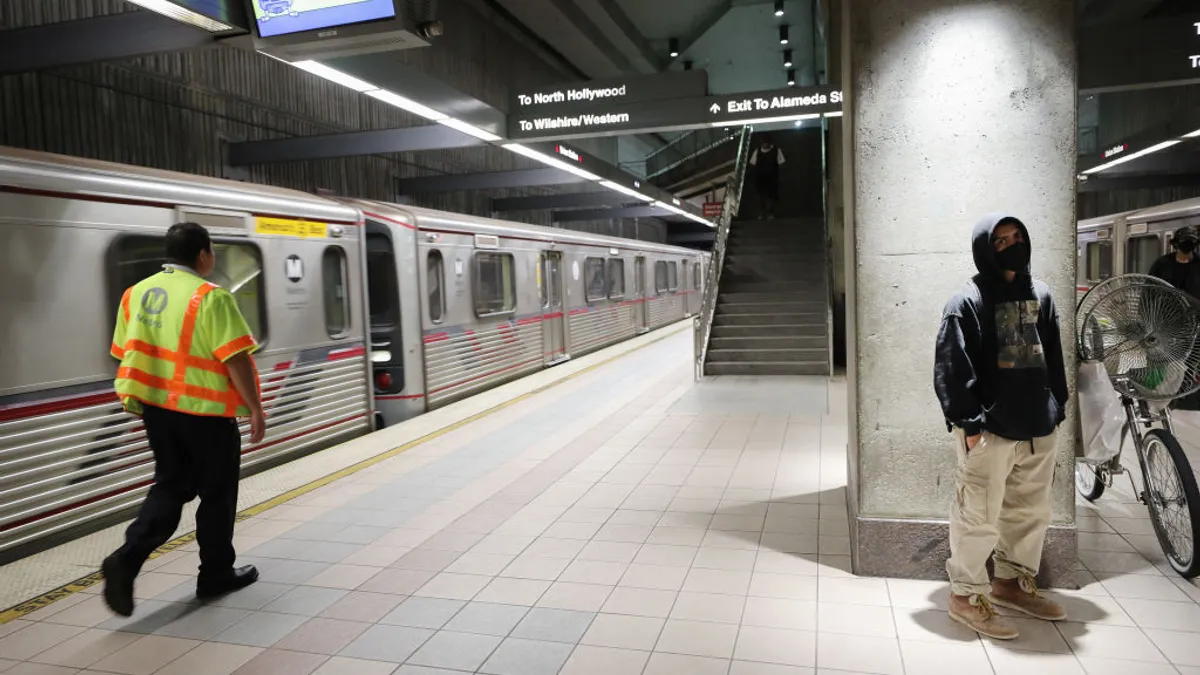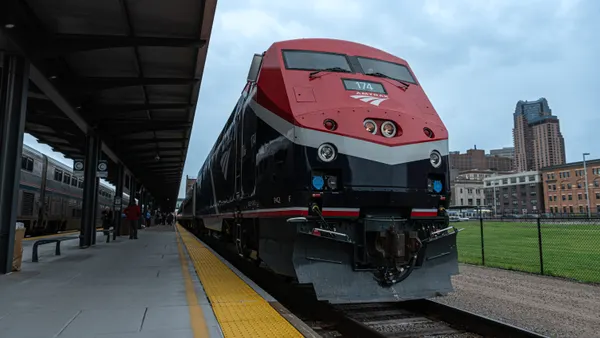Dive Brief:
- The Los Angeles County Metropolitan Transportation Authority (L.A. Metro) is moving closer to eliminating fares for students and low-income riders, an effort that could make bus and train rides free for more than 70% of Los Angeles passengers.
- The L.A. Metro Board of Directors voted unanimously last month to explore a 23-month pilot that would give free fares to K-12 students, community college students and riders who make less than $35,000 a year. A final decision on the pilot will come after the board receives a financial report on the potential impact of the program.
- If approved, Los Angeles would join several other cities that have recently offered free fares to certain riders. Agencies in Kansas City, Boston, Seattle and Richmond, Virginia, have offered free fares to some riders, and other systems, including Washington, D.C., are exploring it.
Dive Insight:
Advocates have pitched the pilot as a way to help alleviate the high cost of living in Los Angeles, with the added benefit of getting riders back onto buses and trains after years of ridership declines.
"When ridership declines, we set this region up for worsening traffic that would have continued if not for the shutdown during the pandemic," said Eli Lipmen, director of programming and development for the transit advocacy group MoveLA. "We have an opportunity to set a different path, one that promises to restore and increase service and also provide relief for those who have been most affected by the pandemic."
The pilot does come with funding questions, although 2020 fares were less than $500 million of Metro’s overall $8 billion fiscal year 2022 budget. According to L.A. Metro surveys, more than 70% of riders make less than $35,000 a year. The pilot is estimated to cost $321 million, according to Rick Jager, a spokesman for the service.
The board wants a fiscal report that would show how federal and state grants could cover the cost of the program and account for any increase in service necessary from a boost in ridership, Jager said. Transit agencies in the greater Los Angeles area will receive more than $1.6 billion from the American Rescue Plan Congress passed this year, which could help cover the pilot cost.
The plan is for the pilot to start for students this August and expand to low-income riders in January 2022, but Jager said that timeline could change based on the results of the financial report, expected some time this summer.
Another open question is whether neighboring districts and bus operators will create similar pilots to make fareless transit a regionwide reality. The Santa Monica Daily Press reports that municipal bus operators outside of L.A. Metro have expressed concern about the budget impact of participating in a fareless program.
A 2019 Massachusetts Institute of Technology study that offered 50% discounted transit fares to some low-income Boston residents found that the subsidized riders took 30% more trips and took more trips to health care and social services, suggesting an increase in quality of life. However, already-strapped transit agencies are weighing such benefits against potential negative budget impacts, which could force them to cut service or reduce costs elsewhere. Those concerns have blocked attempts to cut or eliminate fares in some cities, like Houston, and they continue to loom over pilot programs. "Once we launch this pilot program, we don’t want to pull back on it," Jager said. "We want to make sure we have the money to fund this before it launches."
Art Guzzetti, vice president for policy and mobility at the American Public Transportation Association, said these proposals could help boost ridership at a time when transit services need more attention.
"Generally speaking, transit services need to be easy to understand, to use and pay for. Zero fare programs allow persons in the community to hop on and off public transportation whether or not they have the correct transit pass or ticket in their pocket," Guzzetti said in an email. "Thus, the facility of zero fare can be a boost to ridership in itself. Beyond that, extending the affordability of the transit trip will encourage persons to use transit for many trips they might otherwise forgo."












